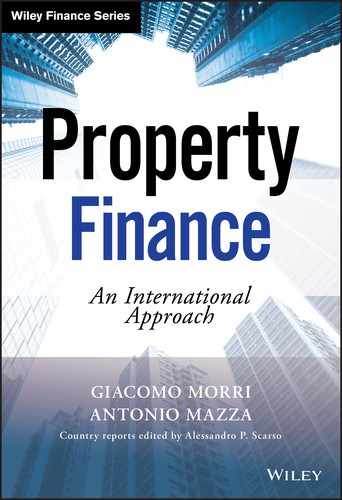Foreword
Real Estate plays a vital role in the economy. The findings of research commissioned by EPRA and INREV which evaluates the role and importance of commercial real estate in the European economy indicate that real estate in all its forms accounts for nearly 20% of economic activity. The commercial property sector alone directly contributed €285 billion to the European economy in 2011, about 2.5% of the total economy and more than both the European automotive industry and telecommunications sector combined. It directly employs over four million people, which is not only more than the car industry and the telecommunications sector, but also greater than banking. Investment in new commercial property buildings and the refurbishment and development of existing buildings on average totals nearly €250 billion each year – representing over 10% of total investment in the European economy and equivalent to the GDP of Denmark. The long-term cash flows generated from property investment provide an important source of diversified income in the portfolios of European savers and pensioners. Property in its various forms represents €715 billion – over 6% – of European pension funds and insurance companies' total investments. Direct ownership is their most common form of property investment but indirect forms of investment – either through non-listed funds or listed property companies and REITs – are becomingly increasingly important.
Relative to its importance, real estate remains under researched whilst at the same time real estate education on an undergraduate as well as a postgraduate level falls behind other sectors with regards to number and quality of educational offerings. It is surprising to note that despite the importance of capital structuring decisions the understanding of market participants remains limited on the way in which the multitude of possible structuring choices of varying equity and debt pieces influences real estate investment risk. The effects of the Global Financial Crisis and the subsequent rapid move from an abundance of lenders – be it in the form of banks, insurance corporations, and other financial intermediaries, willing to provide significant amounts of capital – to a marked unwillingness to continue to provide the previous levels of debt in combination with complete withdrawal of some players from global debt markets, together with increasing requirements of lenders with regards to covenants and margins, have started a painful learning process within the real estate industry across all market participants. As the drying up of the debt market has demonstrated, debt and equity markets are in a very dynamic continuously changing mode and are constantly evolving to meet the requirements of borrowers, lenders, and equity investors.
Antonio Mazza and Giacomo Morri, the authors of this book on property finance, solve the perceived dichotomy between real estate practitioners and academia in an ideal way. Mazza and Morri provide a unique property finance textbook that is based on robust economic and finance principles and comparable to those in the area of managerial finance. The structure of the book fulfils the needs of all actors involved in property finance decision making processes as well as those of students in masters programmes with a specific interest in the field of real estate. The book follows a traditional approach by first differentiating and explaining the basics of general financing decisions as a framework and then quickly relates to real estate financing practices in the leading western economies as well as China and India. What makes this book so valuable and distinctive is the seamless blending of theory and practice. The foundation on theory allows an understanding of the real estate capital markets, its institutions, regulations, and structures and the practical examples, calculations, and reference to case studies position this book in an exceptional way.
I do hope that this book will be picked up by its target readership and thus improve the level of knowledge and professionalism in property finance.
Amsterdam – Brussels, August 2014
Prof. Dr. Matthias Thomas
Chief Executive Officer, INREV (European Association for Investors in Non-Listed Real Estate Vehicles)
